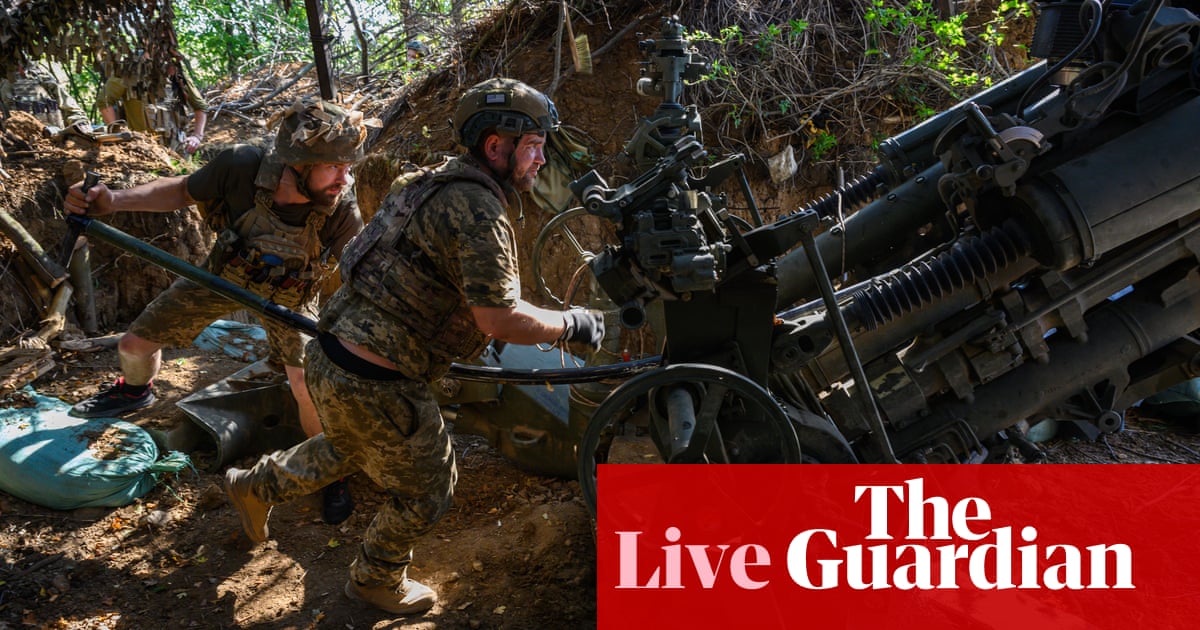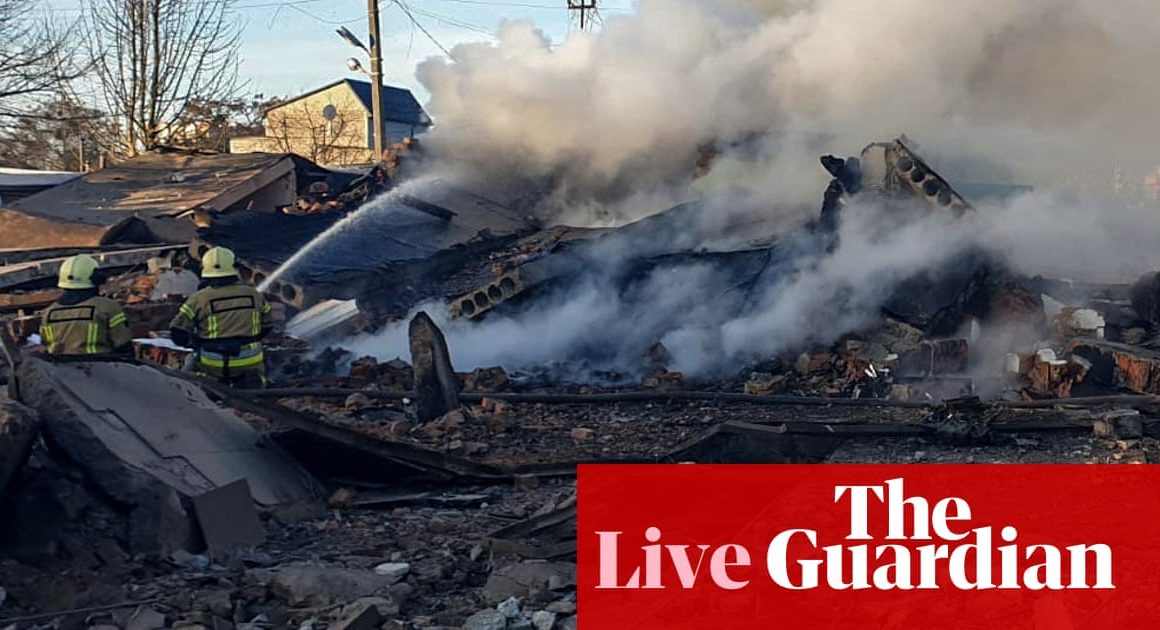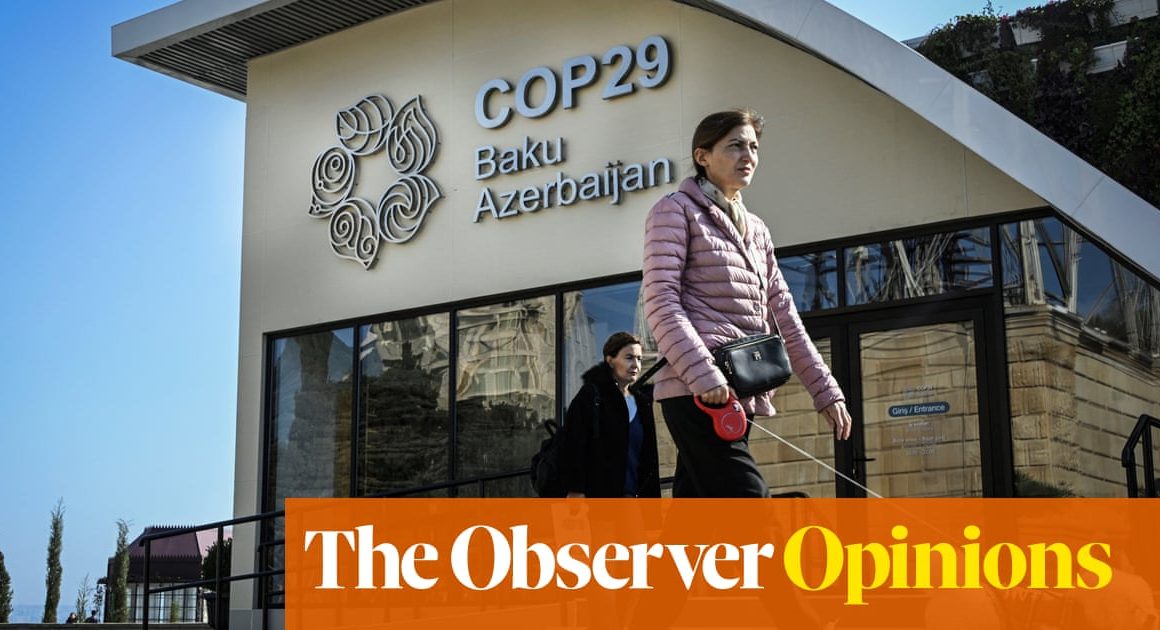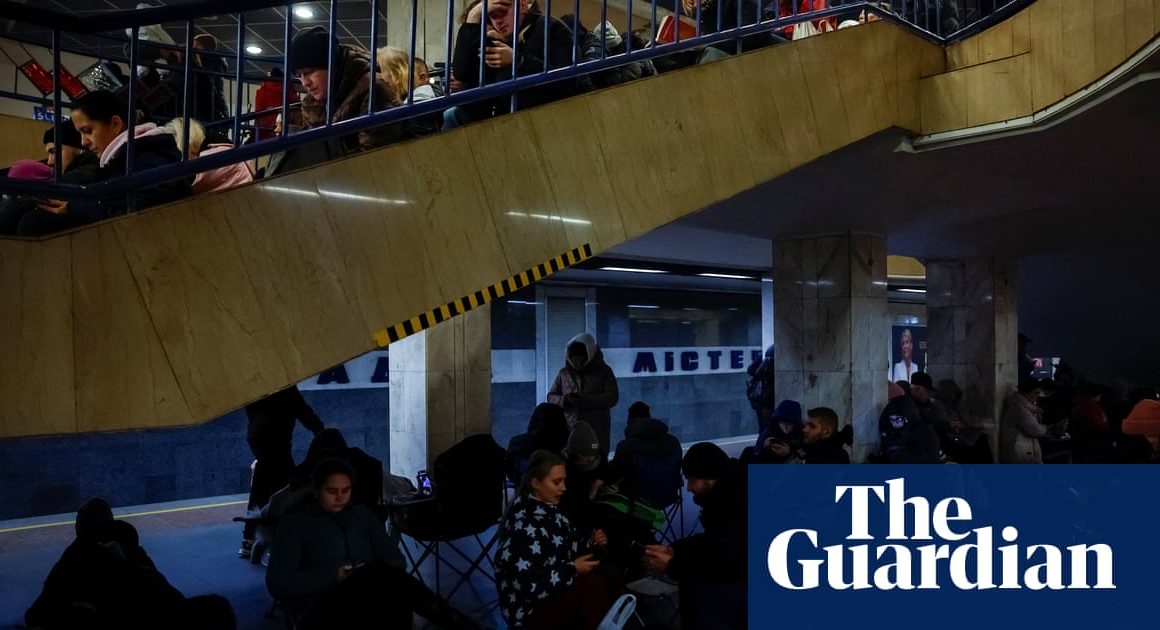Key events
India’s prime minister, Narendra Modi, is scheduled to travel to Kyiv in August, marking his first visit to Ukraine since Russia launched its full-scale invasion two years ago.
India and China have become key buyers of Russian oil after sanctions imposed by the US and its allies that shut most western markets for Russian exports.
Under Modi’s leadership, India has avoided condemning Russia’s action in Ukraine while emphasising the need for a peaceful settlement.
The Kyiv Independent has this report on Modi’s upcoming visit:
The visit, still in the planning stages, is expected to occur in the third week of August, likely sometime around Ukraine’s Independence Day, according to WION, India’s English language news channel, who spoke with several sources in Delhi’s diplomatic circles.
Earlier this year, President Volodymyr Zelenskiy extended an invitation to Modi during a telephone conversation.
In June, Modi met with Zelensky in Italy during the G7 summit. They discussed the ongoing situation in Ukraine, with Modi emphasising the importance of “dialogue and diplomacy”. He reiterated that India would continue to support a peaceful resolution, according to the meeting’s official handout.
This marked the second in-person meeting between the two leaders since the all-out war began, the first being at last year’s G7 summit in Japan. Given the closure of Ukrainian airspace, world leaders have been traveling to Ukraine via Poland.
It is expected that Modi will follow this route and hold discussions with Polish leadership, including prime minister Donald Tusk, ahead of his visit to Ukraine.
Serhiy Lysak, governor of the Dnipropetrovsk region, said the Russian army attacked the Nikopol district at night with a kamikaze drone and then with artillery. No casualties have so far been reported.
Ukrainian forces to consider using more ‘camouflage’ tactics to counter increasing threat of ballistic strikes
The air force of the armed forces of Ukraine has written on Telegram that Russia has increased the number of “ballistic” strikes over the past few months, forcing Ukrainian forces to think more about “passive defence” tactics such as camouflage and using “false positions”.
Over the past few months, the enemy has increased the number of “ballistic” strikes. So in addition to active defence, we have to think about passive defence – camouflage, shelter and… false positions.
Current government funding is currently sorely lacking, so join fund and community initiatives that will raise funds for air force mock-ups.
Russia, which has been making incremental gains in the east in recent months, says its long-range aerial attacks are used to degrade Ukraine militarily.
Kyiv has poured energy into domestic drone production to narrow the gap between its strike capabilities and Moscow’s, staging long-range drone attacks on Russian targets including oil refineries.
Ukraine war an existential threat to the EU – Borrell
We are restarting our live coverage of Russia’s war in Ukraine and will give you the latest updates throughout the day.
The EU’s most senior diplomat, Josep Borrell, warned that Russia’s war against Ukraine is an “existential threat” to Europe as he urged China to support the peace process to end the conflict during a meeting with the country’s foreign minister, Wang Yi.
China, a close ally of Moscow, has not publicly condemned Russia’s invasion of Ukraine. Beijing has set out a 12-point paper setting out general principles for ending the war.
In comments made on the sidelines of the the association of southeast Asian nations in Laos, Borell also urged Beijing to halt the export of dual-use goods to Russia, which bolster its military capabilities.
According to a press release from the EU’s diplomatic service, Borell, who is also a vice-president of the European Commission, told Wang Yi:
The EU high representative/vice-president explained why the European Union considers Russia’s war against Ukraine is an existential threat to Europe. He expressed his concern because China’s exports of large amounts of dual-use goods and items represent a support to Russia to build up its military equipment.
The EU high representative/vice-president asked China to use its influence on Russia to contribute to end the war. He asked China to support the Ukraine peace process and considered that the joint statement with Brazil of May 2024 does not go in that direction.
In other developments:
-
Ukraine’s air defences shot down four attack drones and one missile fired by Russia in an overnight attack on Saturday, the Ukrainian air force said.
“All targets were shot down by the Ukrainian defence forces in Dnipro, Poltava, Kharkiv and Kyiv regions,” the military said in a statement. -
The governor of the Bryansk region in southern Russia, Alexander Bogomaz, reported a “massive” drone attack on the region yesterday evening and overnight. No casualties were reported. “22 unmanned aircraft-type aerial vehicles have been intercepted and destroyed,” Bogomaz wrote on Telegram.
-
Ukrainian missile forces struck a Russian military airfield in Crimea that had been used for long-range attacks, Ukraine said on Friday, in the latest in a series of blows to the Russian military on the occupied peninsula. Russia’s Saky airfield in western Crimea was targeted, the Ukrainian military’s general staff said, adding it was assessing the aftermath. “This is one of the operational airfields that Russia uses to control the airspace, in particular the Black Sea, and for launching airstrikes on Ukrainian territory.” There was no immediate comment from Russia’s defence ministry or local Moscow-installed officials.
-
The US Treasury secretary said “things look good” for Group of Seven wealthy democracies to agree the terms of a $50bn loan to Ukraine backed by Russian assets by October. Janet Yellen told Reuters on the sidelines of a G20 finance leaders meeting in Brazil that talks to advance the loan were constructive, including over US demands for reassurances that the assets would stay frozen for a longer period of time. The $50bn loan, agreed in principle by G7 leaders in June, would be serviced with proceeds generated by about $300bn of Russian central bank assets frozen in the west after Moscow’s 2022 full-scale invasion of Ukraine.










